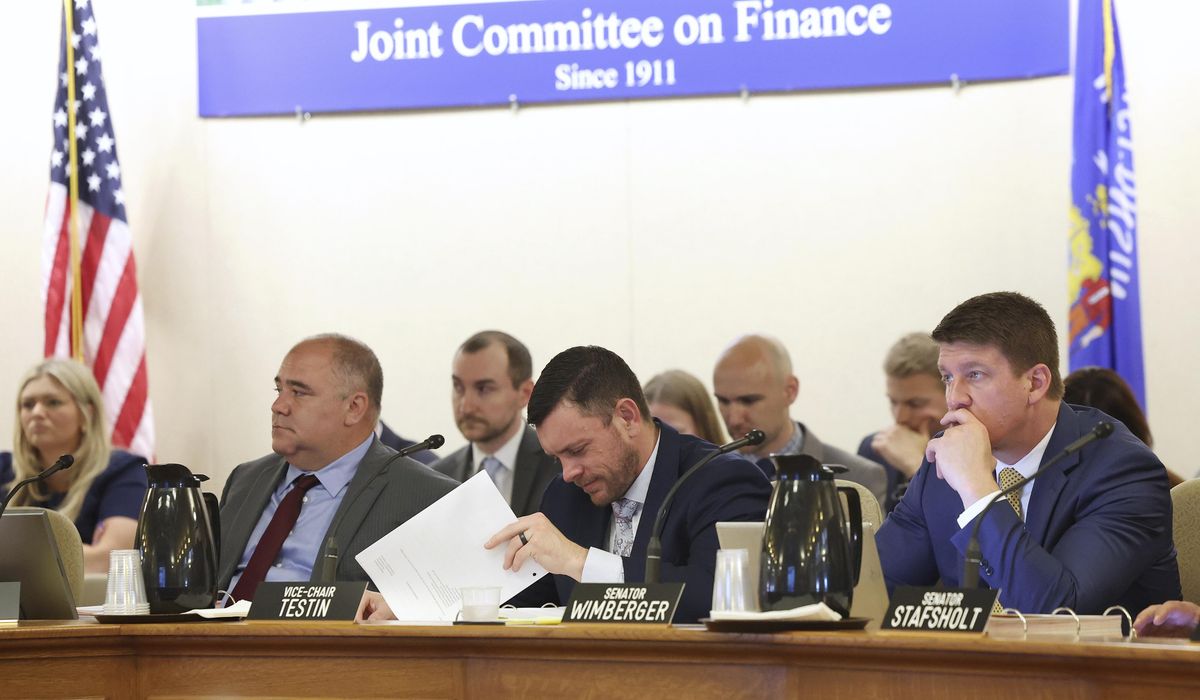


MADISON, Wis. — The Wisconsin Legislature pushed to pass a compromise state budget Wednesday, with Democratic votes expected to be needed to approve the deal reached between Gov. Tony Evers and majority Republicans.
The two-year spending plan would affect nearly every person in the battleground state. Income taxes would be cut for working people and retirees, sales taxes would be eliminated on residential electric bills and it would cost more to get a driver’s license, buy license plates and title a vehicle.
There was urgency to pass the plan because of one part that increases an assessment on hospitals to help fund the state’s Medicaid program and hospital provider payments. Changes being discussed in Congress could prohibit or limit the state’s ability to do this in the future, Evers warned.
In a highly unusual move, Republicans planned to vote on it in both the Senate and Assembly on Wednesday. In at least the past 50 years, the budget has never passed both houses on the same day.
Governors typically take several days to review and sign the budget after it’s passed.
But Republican Assembly Speaker Robin Vos said he hoped that Evers would sign the budget late Wednesday night, or early Thursday, so it would be enacted before Trump signs the federal tax and spending cuts package.
A spokesperson for the governor has not returned an email seeking comment.
In a concession to the Democratic governor, Republicans also agreed to spend more money on special education services in K-12 schools, subsidize child care costs and give the Universities of Wisconsin its biggest increase in nearly two decades. The plan would also likely result in higher property taxes in many school districts due to no increase in general aid to pay for operations.
The budget also calls for closing a troubled aging prison in Green Bay by 2029, but stops short of enacting a more broad prison overhaul plan put forward by Evers.
Evers, who has broad partial veto powers, has promised not to kill any portions of the budget he agreed to with Republicans.
Evers, who is midway through his second term, said he would announce his decision on seeking a third term after he has signed the budget. He has 10 working days after the Legislature passes the budget to take action on it.
Democrats said newly drawn legislative maps, which helped them pick up seats in November and narrow the Republican majorities, led to greater compromise this year.
Republican Sen. Patrick Testin, a member of the budget committee, said the plan was far from perfect, but “this is where we’re at with divided government.”
While Republicans still hold majorities in the Senate and Assembly, they were expected to need Democratic votes to pass it in the Senate. Republicans have a narrow 18-15 majority there, and two Republicans have publicly said they planned to vote against the deal.
LeMahieu, the Republican Senate leader, said more GOP lawmakers planned to vote for the budget than against it, but declined to give exact numbers.
Democratic senators were brought into budget negotiations in the final days to secure enough votes to pass it.
“It’s a bipartisan deal,” Senate Minority Leader Dianne Hesselbein said before the vote. “I think everybody left the table wishing it was different, but this is something everyone has agreed on.”
But that didn’t stop some of the most liberal Democrats in the Legislature from speaking out against the plan on Tuesday, calling for more changes before a vote.
In a social media post, Democratic state Rep. Francesca Hong, of Madison, urged voters to contact Evers and lawmakers to pressure them to reject the plan, which she said “fails to meet the needs of our children and working-class families.”
She is one of four Democrats in the socialist caucus, all of whom pledged to vote against the budget.
Democratic Sen. Kelda Roys, a member of the budget committee, said she was leaning toward voting against the plan. But fellow Democratic budget committee member Sen. LaTonya Johnson signaled that she would back it.
“It should be a bipartisan document of our values and of our priorities,” Johnson said. “And it was a bipartisan effort, not necessarily by choice, but by force, and that’s OK. We’ll take it any way we can get it.”
Democratic senators refused to say how they planned to vote at a news conference before the debate started.
